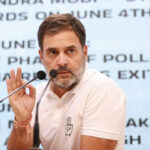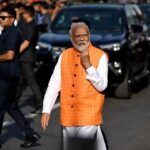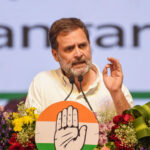In a bizarre and controversial statement, Errol Musk, the father of billionaire entrepreneur Elon Musk, has reignited a long-debunked conspiracy theory by claiming that former First Lady Michelle Obama is a man. The claim, which has been circulating in fringe circles for years, resurfaced during an interview with Errol, sparking widespread outrage and debate. Here’s a closer look at the origins of this conspiracy theory, Errol Musk’s comments, and the broader implications of such claims.
Errol Musk’s Controversial Claim
Errol Musk, a South African electromechanical engineer and the father of Tesla and SpaceX CEO Elon Musk, made the shocking statement during an interview with The Sun. When asked about his thoughts on Michelle Obama, Errol responded, “Michelle Obama is a man. Everyone knows that.” He provided no evidence to support his claim, instead dismissing it as common knowledge.
The comment quickly went viral, drawing criticism from public figures, media outlets, and social media users. Many condemned Errol’s statement as baseless, offensive, and rooted in harmful stereotypes. The controversy also raised questions about the impact of such conspiracy theories on public discourse and the role of influential figures in perpetuating them.
Origins of the Conspiracy Theory
The conspiracy theory that Michelle Obama is a man has been circulating online for over a decade, primarily among far-right and anti-Obama groups. The claim is often accompanied by manipulated photos, out-of-context videos, and pseudoscientific arguments about her physical appearance. Despite being repeatedly debunked by fact-checkers and experts, the theory persists in certain corners of the internet.
The conspiracy is part of a broader pattern of misinformation targeting high-profile women, particularly women of color. Similar claims have been made about other public figures, including tennis star Serena Williams and actress Gabrielle Union. These theories often rely on sexist and racist tropes, reinforcing harmful stereotypes about gender and identity.
Public Reaction to Errol Musk’s Comments
Errol Musk’s statement has sparked widespread backlash, with many calling out the absurdity and harm of such claims. Social media platforms were flooded with reactions, ranging from outrage to mockery. Critics pointed out that the conspiracy theory is not only false but also deeply disrespectful to Michelle Obama, who has been a trailblazer for women and marginalized communities.
Author and activist Roxane Gay tweeted, “The fact that people still entertain this nonsense about Michelle Obama is a testament to how deeply misogyny and racism are ingrained in our society. It’s exhausting and infuriating.”
Others criticized Errol Musk for using his platform to spread misinformation. “It’s irresponsible for someone with even a modicum of influence to perpetuate such harmful lies,” wrote journalist Jemele Hill.
Elon Musk’s Silence
As of now, Elon Musk has not publicly addressed his father’s comments. This silence has led to speculation about whether the Tesla CEO shares his father’s views or if he plans to distance himself from the controversy. Elon Musk, who has a massive following on social media, has previously been criticized for amplifying conspiracy theories and controversial opinions.
Some have called on Elon to condemn his father’s statement, arguing that his silence could be interpreted as tacit approval. However, others believe that Elon should not be held accountable for his father’s actions, emphasizing the importance of separating the two individuals.
The Broader Impact of Conspiracy Theories
Errol Musk’s comments highlight the dangers of conspiracy theories and their ability to persist despite being debunked. Such theories not only spread misinformation but also contribute to a toxic and divisive public discourse. They often target marginalized groups, reinforcing stereotypes and perpetuating discrimination.
The Michelle Obama conspiracy theory, in particular, reflects broader societal issues related to gender, race, and identity. By questioning her gender, the theory seeks to undermine her accomplishments and legitimacy as a public figure. It also reflects a discomfort with strong, successful women, particularly those who challenge traditional norms.




































